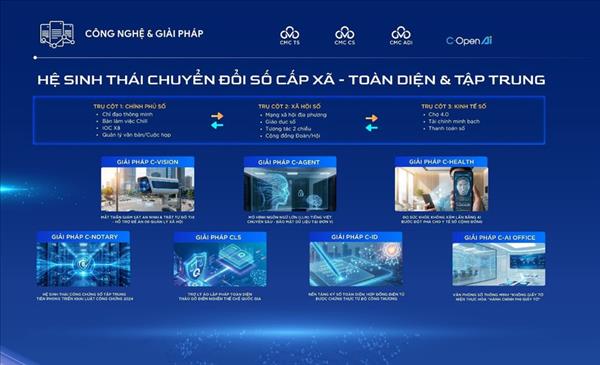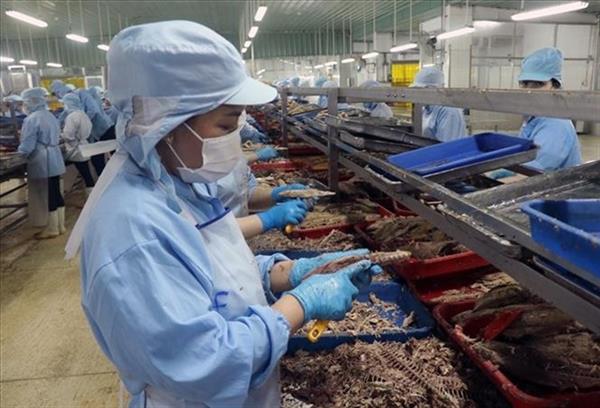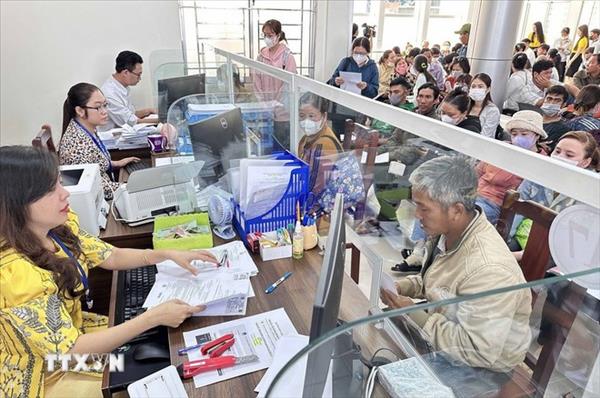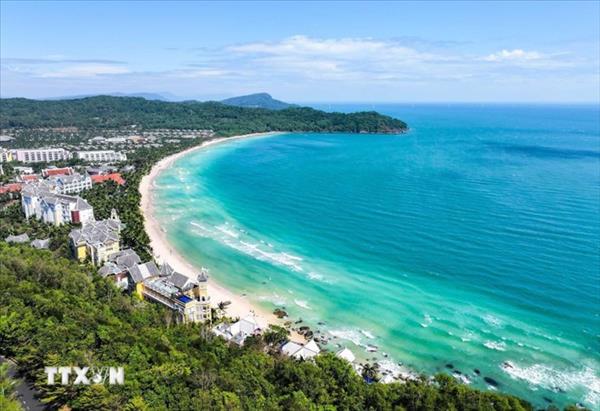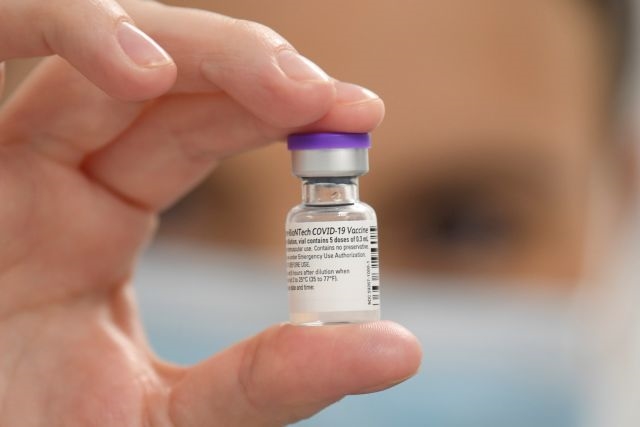 A vial of Pfizer/BioNTech COVID-19 vaccine. Photo: AFP/VNA |
Vietnam News asked Pfizer Vietnam about the deal to supply 31 million COVID-19 vaccine doses to the Vietnamese health ministry. The company reaffirmed its commitment to sell at non-for-profit prices and fulfil deliveries to the country.
Can you give us more information regarding the supposed shipment of first Pfizer doses to Vietnam in July? The amount, a more specific timeline of delivery for the shipment and for subsequent shipments? Can you confirm that 31 million doses will be delivered to Vietnam within 2021?
As announced, our agreement with the Ministry of Health in Việt Nam to supply 31 million doses of our COVID-19 mRNA vaccine (BNT162b2) – Comirnaty – will be delivered in Q3 and Q4, 2021. The distribution of the vaccine in Vietnam will be led by the Ministry of Health. Pfizer remains fully focused on our mission to get vaccines to Vietnam as quickly as possible.
Currently it is the policy of most COVID-19 vaccine manufacturers/companies, including Pfizer, to only negotiate with central governments regarding supply deals, and rule out commercial deals with private parties. What about talks with local governments, for example, with HCM City or Hanoi municipal authorities for separate deals?
During the pandemic phase, across the world, Pfizer will supply its COVID-19 vaccine only to central governments and supra-national organisations for deployment in national immunisation programmes. The allocation of doses and implementation plan within a country is a decision for governments based on relevant health authority guidance.
Can shipments meant for Vietnam be diverted to a different region/country with more intense outbreaks (hence more emergency needs than Vietnam) depending on Pfizer’s assessment?
We have signed an agreement with the Ministry of Health in Vietnam to supply 31 million doses of our COVID-19 mRNA vaccine (BNT162b2) – Comirnaty. The agreement is part of our global commitment to help address the COVID-19 pandemic. We continue our engagement with the Government towards making the Pfizer BioNTech Covid-19 vaccine available for use in the country.
Pfizer is utilising a tier-pricing approach for its vaccines, including the COVID-19 vaccine. What group of income does the company determine Việt Nam to be in, and what would that categorisation entail in terms of pricing? Pfizer Inc.’s chief executive was quoted by Bloomberg saying that some low- and middle-income countries had opted not to order the company’s COVID-19 shot. What seems to be the concern for these countries? Is it cost, challenges in storage and transportation of mRNA-based vaccines in general?
Our focus has always been on moving quickly to get doses to all countries at the beginning of our vaccine development programme. We reached out to countries at all income levels all around the world to secure orders to prepare our allocation.
Pfizer has offered to make required doses of our COVID-19 vaccine available at a “not-for-profit” price for Việt Nam, as for all low and lower-middle income countries. Pfizer remains committed to equitable and affordable distribution of the Pfizer-BioNTech COVID-19 vaccine. We have a deep sense of responsibility to help ensure the Pfizer-BioNTech COVID-19 vaccine is made available and we have gone to enormous efforts, including manufacturing risks, to put us in the best possible position as we seek to serve populations all over the world.
Pfizer is positioned to potentially deliver approximately 3 billion doses of the Pfizer-BioNTech COVID-19 vaccine worldwide by the end of 2021. Because of this and our continued efforts to boost vaccine manufacturing, we have pledged to supply 2 billion doses to low-and middle-income countries in 2021 and 2022.
As of June 9, 2021 we have shipped more than 700 million doses of the Pfizer-BioNTech COVID- 19 vaccine to more than 100 countries and territories around the world.
Why can’t vaccine prices be made publicly available?
During the pandemic, instead of using a traditional cost-effectiveness approach, we have priced in a way that can help governments to ensure that there is little to no out-of-pocket costs for their populations. Broad access is important – speed, safety and availability are driving us.
Our pricing strategy is based on volume, advance commitments, equity, and affordability principles. Low and lower middle-income countries will pay a not-for-profit price.
It is important to note that our COVID-19 vaccine development and manufacturing costs have been entirely self-funded and we have already invested billions of dollars (and are prepared to continue bearing the costs of all development and manufacturing scape-up costs) in an effort to find a solution to this pandemic.
Have the USCDC’s alternative guidelines which state that the Pfizer mRNA COVID-19 vaccine vials could be stored in normal fridge temperature (2-8 degrees Celsius) within a month or so prior to withdrawal proved enough for developing nations to take up on the mRNA vaccine, instead of relying only on vaccines using conventional technology? Will Pfizer be supporting Vietnam in terms of transportation and storage, and if so, in what form?
We have developed detailed logistical plans and tools to support effective vaccine transport, storage, and continuous temperature monitoring. Our distribution is built on a flexible just in time system which will ship the frozen vials to the point of vaccination. We seek to work with governments to support distribution to their defined priority groups and we anticipate that points of vaccination will vary but may include hospitals, outpatient clinics, community vaccination locations and pharmacies.
Pfizer has built the capability to deliver its COVID-19 vaccine to the last mile vaccination centres using our specially designed, temperature-controlled thermal shippers. Once a point-of-use (POU) facility receives a thermal shipper with our vaccine, they have multiple options for storage:
Ultra-low-temperature freezers, which are commercially available and can extend shelf life for up to six months.
The Pfizer thermal shippers, in which doses arrive, that can be used as temporary storage units by refilling with dry ice every five days for up to 30 days of storage.
Refrigeration and freezer units that are commonly available in hospitals.
The US Food and Drug Administration (FDA) has now approved that Pfizer BioNTech’s COVID-19 vaccine vials can be stored for up to one month (31 days) at 2-8°C – the standard temperature of a refrigerator.
mRNA vaccines like Pfizer and Moderna are highly anticipated in Vietnam and other countries, and a number of people here have stated they’d rather wait for their “preferred” vaccine brand instead of having what is currently available, for example, AstraZeneca – which currently makes up the mainstay of Vietnam’s vaccination drive. What would you say about this situation? Also, another ‘side-effect’ of the hype for is counterfeit problem. Can you give us an overview of the hallmarks of genuine vs counterfeit vaccines? Is Pfizer and US Homeland Security Investigation’s recent virtual workshop with the Vietnamese market surveillance units sufficient to give proper training with regards to spotting fake products?
To address the global health crisis, all of our current COVID-19 vaccine supply agreements are with national governments or supra-national organisations such as COVAX.
Pfizer is committed to working towards equitable access that will give all people access to a vaccine.
Illicit and counterfeit products can pose real health and financial risks to individuals who unknowingly purchase these products. Sophisticated counterfeit products are often difficult for both healthcare professionals and the general public to identify, making it essential that all vaccines and treatments – including those for COVID-19 – are obtained from legal and authorised distribution channels.
Around the world, Pfizer and BioNTech are working in partnership with government agencies to safely and efficiently distribute the vaccine.
The Pfizer-BioNTech COVID-19 vaccine is not available through intermediaries or private distributors at this time.
In addition, there are currently no legitimate COVID-19 vaccines manufactured by Pfizer that are available for purchase by individuals or private businesses in any country.
What do you think about the vaccine inequality at the moment? Do you consider a collective moral failure? What have Pfizer done to address this issue?
Pfizer is firmly committed to working towards equitable and affordable access for COVID-19 vaccines for people around the world.
We continue to work closely with governments around the world, to address the needs that they identify and help bring this vaccine to those who need it most.
VNS/VNP

